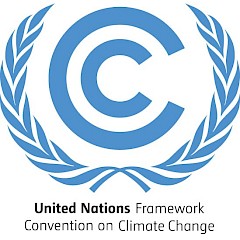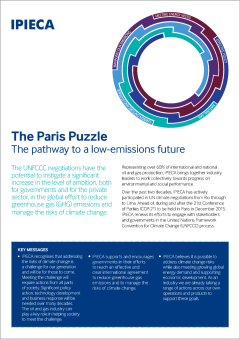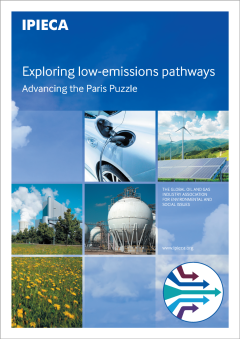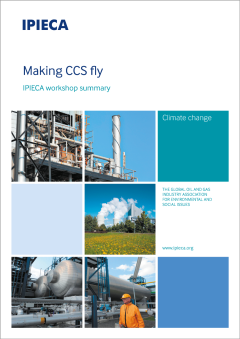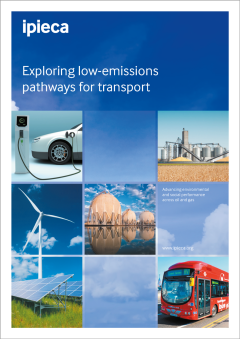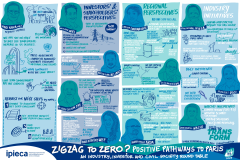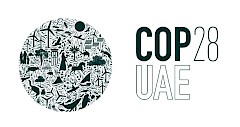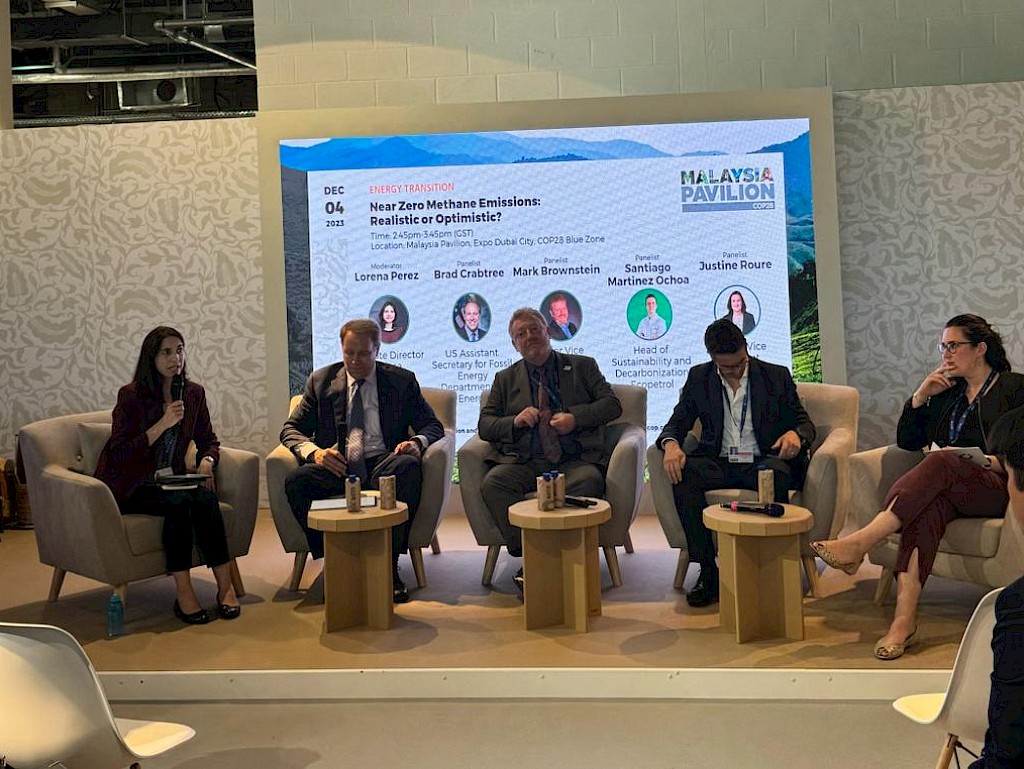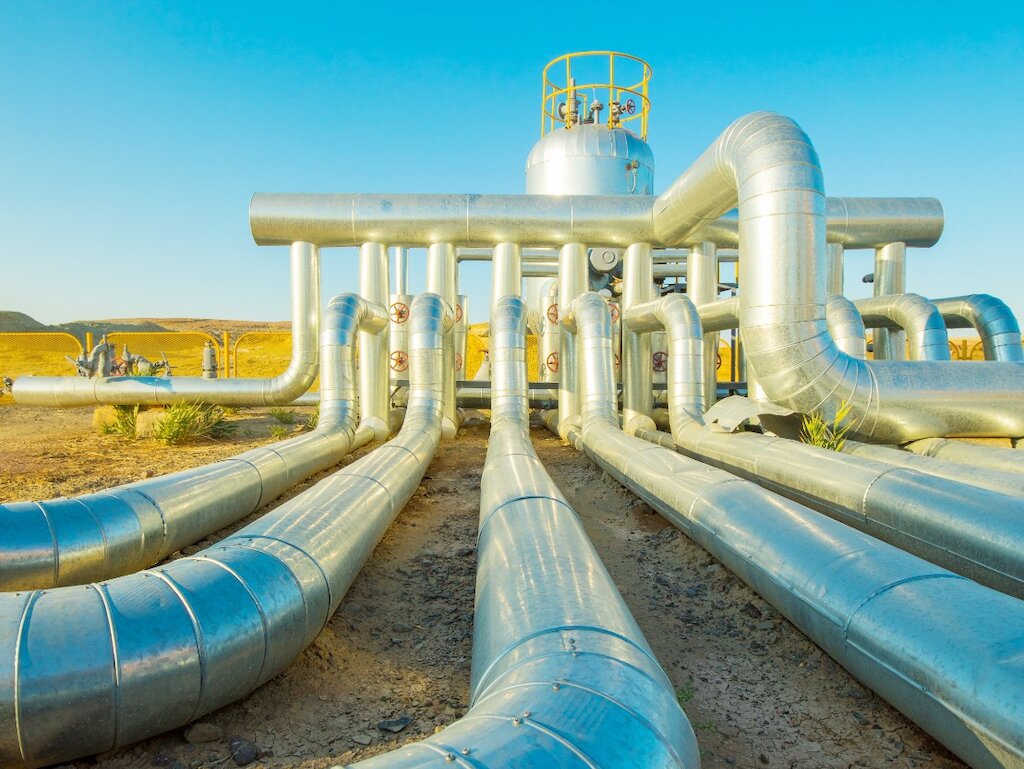Carbon capture and storage
One of the key technologies that can enable large-scale, cost-effective mitigation of CO2 within the industry and across other sectors is carbon capture and storage (CCS).
CCS will likely be key to the transformation of the energy system. The IPCC Sixth assessment report attaches considerable importance to CCS, with most global modelled mitigation pathways which achieve net zero including deployment of CCS, including the pathway which relies heavily on renewables technologies.
The oil and gas industry is currently working to develop CCS technologies and projects, as well as to address barriers and explore opportunities to enable its uptake. Of the 50 large-scale CCS projects in operation today, the majority are related to oil and gas activities.
In 2023, Ipieca collaborated with SPE Gaia, OGCI and IOGP on a series of CCS webinars to share knowledge and good practice on how to sustainably scale up this technology.
In 2024, we held a workshop with industry representatives, academia, think tanks and others to share learnings and latest developments on CCS developments, focusing on challenges and opportunities concerning the deployment and uptake of CCS technologies.
Hydrogen
Achieving the ambitions of the Paris Agreement will not be possible through electrification of the energy system alone, especially for those countries aiming to reach net-zero emissions by 2050. In the transition to a low-carbon economy, hydrogen could play a key role.
Hydrogen combustion can produce the high-quality heat necessary for numerous industrial processes. Low-carbon hydrogen can support hard to abate sectors such as heavy industry and heavy-duty transport - often the drivers of developing economies - to lower their emissions as well as offer large-scale, long-term back up for renewables.
The oil and gas sector has the experience, skills and knowledge to develop and scale up production of hydrogen from gas as a low-carbon, low-cost source of energy. A hydrogen economy can make use of existing gas pipeline infrastructure.
Ipieca’s Hydrogen: enabling the energy transition and the pathways to net-zero emissions provides an overview of this technology, exploring the different methods by which hydrogen can be produced and stored, as well as the opportunities for its use in industry, transportation and households. It also features a range of industry case studies.
The role of carbon offsets in mitigation
Ipieca members support the use of carbon-compensated products that align with the greenhouse gas (GHG) emissions mitigation hierarchy. Priority is given to avoiding and reducing emissions within the product value chain.
The use of carbon offsets is a last-resort solution to compensate for residual GHG emissions. Where emissions are unavoidable, high-quality offsets should be used, and offsetting strategy should be regularly revised as best practice evolves.
Carbon-compensation involves a company purchasing and retiring a volume of voluntary carbon credits to compensate for (or offset) GHG emissions. This can be applied to the energy products that oil and gas companies sell to their customers such as those used in fuels for transportation and heating.
Ipieca’s awareness brief builds a shared understanding of carbon-compensated products, their role in supporting net-zero ambitions and the energy transition, and explores good practice in using them. In 2021, Ipieca hosted a two-day workshop on the role of carbon offsets in greenhouse gas mitigation and enhanced ambition.

